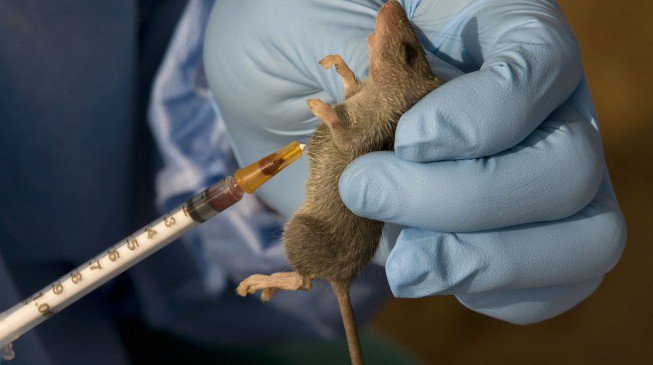A call has gone to the Federal Government to declare the Lassa Fever disease currently ravaging the nation a public health event of national concern attaining an emergency status.

The call was made on Monday, February 10, 2020 by the Nigerian Academy of Science (NAS) in a statement endorsed by its president, Professor K. Mosto Onuoha, and made available to EnviroNews.
According to the Nigeria Centre for Disease Control (NCDC), the death toll from the latest round of Lassa fever outbreak in the country has risen to 47 so far, with 365 confirmed cases as the acute viral hemorrhagic fever continued to spread.
Indeed, over the past 50 years, Lassa Fever has become a disease occurring in perennial outbreaks, in nearly all the states of Nigeria, with increasing numbers of suspected cases, dry season peaks, and high case fatality rates.
While acknowledging and commending the effort of the federal government and its ministries, departments and agencies (MDAs), NAS is however clamouring the establishment of an interdisciplinary One-Health Committee to advise and assist the NCDC in investigating and managing Lassa Fever outbreaks.
The committee, adds NAS, should comprise of medical and veterinary specialists, epidemiologists, social scientists, media practitioners and community representatives, among others.
Prof. Onuoha in the statement urged government to provide adequate funds for a disease surveillance system backed by a reliable network of diagnostic laboratories.
According to him, given that only about 20% of suspected Lassa Fever cases are usually confirmed, there is the need to improve the capability and enhance the capacity of the national laboratory network for reliable and efficient definitive diagnosis of suspected cases.
His words: “The Federal and State Governments need to mount an extensive and sustained public Lassa Fever prevention and control awareness programme.
“Each state should establish a functional isolation ward for the treatment of Lassa Fever patients.
“It is important to set up a mechanism for improving environmental sanitation in a sustained manner throughout the country to reduce rodent population and rodent – human contact.
“Funds should be provided for research into finding new drugs for Lassa Fever treatment and the development of a Lassa Fever vaccine.”
NAS laments that while a drug exists for the treatment of the disease, the inefficient laboratory diagnosis and late hospital admission of patients, add up to make the drug less effective in treating Lassa Fever patients.
“The spread of the disease throughout the country may have resulted from increasing human-rodent contact in an explosive population of rodents generated by pervasive poor environmental sanitation. Nigeria must take positive and sustained action necessary to prevent and control Lassa Fever now, and not wait until more fatalities are recorded as a result of the yearly occurrence,” adds the group.
